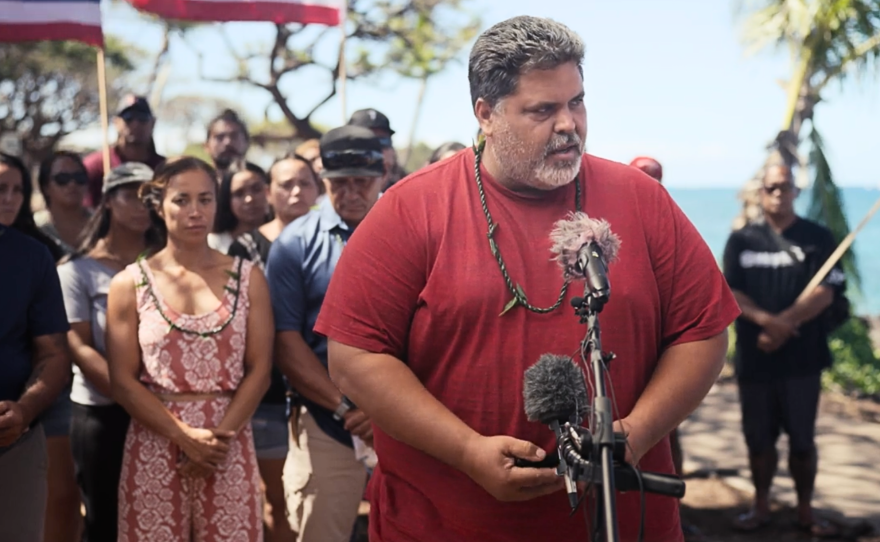Read part one of Kuʻuwehi Hiraishi's reporting on the latest water disputes in West Maui.
Water Commission Chairperson Dawn Chang’s unilateral decision to redeploy Deputy Director Kaleo Manuel has already prompted serious concerns from members of the Water Commission.
The move also triggered a lawsuit by West Maui residents Kekai Keahi and Jen Kamahoʻi Mather.

Kaleo Manuel was the Water Commission Deputy Director at the time of the fire on Aug. 8. Manuel’s decision to ensure stream water in West Maui was made available first for public trust purposes and then for private commercial interests has brought controversy.
That same day, West Maui Land Co. requested to divert more water from West Maui streams than is allowed under the law. Manuel advised the company to ensure downstream users and others who depend on those streams would not need the water to fight the approaching fire.
A week later, Chang announced in a news release that Manuel would be transferred to another division within the state Department of Land and Natural Resources. This news shocked Water Commissioner Neil Hannahs, who immediately raised his concerns in a letter to Chang.
In the letter, Hannahs said “it would be a gross understatement” to say that he was surprised to learn of Manuel’s transfer via public announcement rather than through Commission deliberation.
Water Commissioner Aurora Kagawa-Viviani echoed that sentiment saying commissioners were given zero input on the decision to relieve Manuel of his duties. She said, in retrospect, the matter should have been addressed in an emergency meeting of the water commission.

West Maui residents are also criticizing Chang’s decision to sideline the water deputy in a lawsuit filed Monday in First Circuit Court.
Plaintiffs Kekai Keahi and Jen Kamahoʻi Mather argue state law does not give Chang the authority to take personnel actions. They argue that even if she did, those actions must occur during an open meeting.
Maui attorney Lance Collins, who represents Keahi and Mather in the lawsuit, says the Water Commission is the entity that has the power to take personnel actions regarding the deputy.
“But the Chair purported to transfer the deputy out of the water commission, and that basically violates the law because it's supposed to be the water commission,” Collins said.
“And the water commission is supposed to hold open meetings before it makes decisions. And so by doing that, it also deprives the public of their ability to know that it was going to possibly happen and to be able to provide testimony and to watch the deliberation of the commission.”
The state Attorney General’s office said in an emailed statement to HPR that the lawsuit is “wholly without merit” and that it looks forward to presenting a motion to dismiss.





